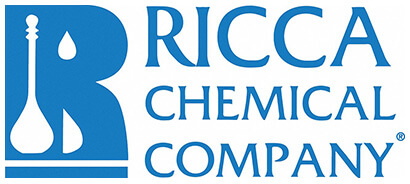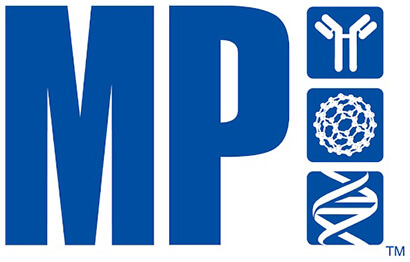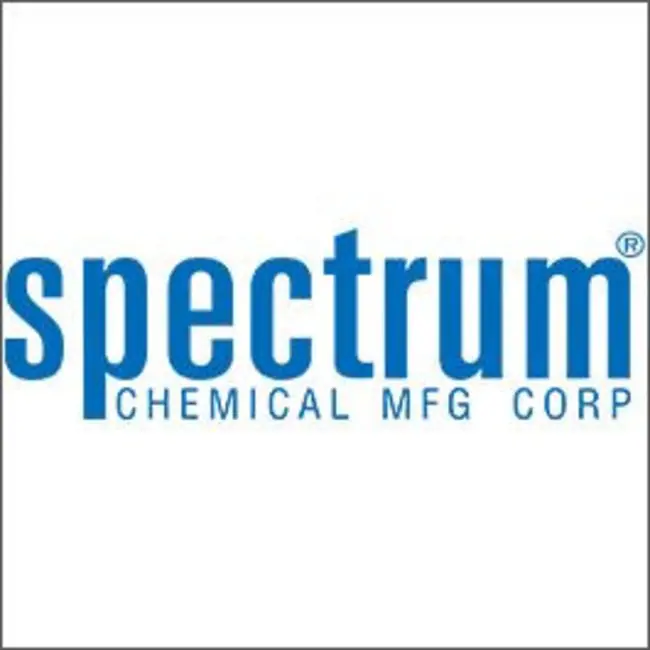Ambient
Showing 90501–90550 of 146499 results
-

Glyphosate-13C
$119.03 Add to cart View Product DetailsMolecular Formula : C213CH8NO5P
-

Glyphosate-13C
$184.58 Add to cart View Product DetailsMolecular Formula : C213CH8NO5P
-

Glyphosate-13C
$570.98 Add to cart View Product DetailsMolecular Formula : C213CH8NO5P
-
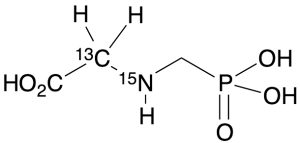
Glyphosate-13C,15N
$215.63 Add to cart View Product DetailsMolecular Formula : 13C C2 H8 15N O5 P
-

Glyphosate-13C,15N
$898.73 Add to cart View Product DetailsMolecular Formula : 13C C2 H8 15N O5 P
-

Glyphosate-13C,15N
$1,643.06 Add to cart View Product DetailsMolecular Formula : 13C C2 H8 15N O5 P
-
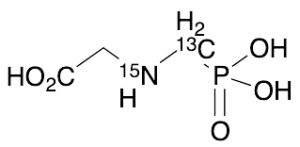
Glyphosate-13C,15N
$267.38 Add to cart View Product DetailsMolecular Formula : 13C C2 H8 15N O5 P
-

Glyphosate-13C,15N
$1,637.03 Add to cart View Product DetailsMolecular Formula : 13C C2 H8 15N O5 P
-

Glyphosate-13C2,15N
$232.88 Add to cart View Product DetailsMolecular Formula : 13C2 C H8 15N O5 P
-

Glyphosate-13C2,15N
$1,756.05 Add to cart View Product DetailsMolecular Formula : 13C2 C H8 15N O5 P
-
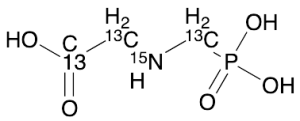
Glyphosate-13C3,15N
$211.31 Add to cart View Product DetailsMolecular Formula : 13C3 H8 15N O5 P
-
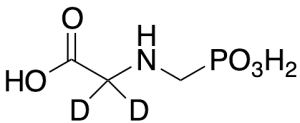
Glyphosate-C2-d2
$214.76 Add to cart View Product DetailsMolecular Formula : C3H6D2NO5P
-

Glyphosate-C2-d2
$440.74 Add to cart View Product DetailsMolecular Formula : C3H6D2NO5P
-

Glyphosate-C2-d2
$780.56 Add to cart View Product DetailsMolecular Formula : C3H6D2NO5P
-

Glyphosphate-FMOC
$199.24 Add to cart View Product DetailsMolecular Formula : C18 H18 N O7 P
-

Glyphosphate-FMOC
$818.51 Add to cart View Product DetailsMolecular Formula : C18 H18 N O7 P
-

Glyphosphate-FMOC
$1,569.75 Add to cart View Product DetailsMolecular Formula : C18 H18 N O7 P
-

GM-CSF, Human
$1,923.38 Add to cart View Product DetailsGranulocyte Macrophage-Colony Stimulating Factor (GM-CSF) was initially characterized as a growth factor that can support the in vitro colony formation of granulocyte-macrophage progenitors. Granulocyte Macrophage-Colony Stimulating Factor (GM-CSF) is produced by a number of different cell types, including activated T cells, B cells, macrophages, mast cells, endothelial cells, and fibroblasts, in response to cytokine of immune and inflammatory stimuli. Besides granulocyte-macrophage progenitors, Granulocyte Macrophage-Colony Stimulating Factor (GM-CSF) is a growth factor for erythroid, megakaryocyte, and eosinophil progenitors. On mature hematopoietic, monocytes/macrophages and eosinophils. Human Granulocyte Macrophage-Colony Stimulating Factor (GM-CSF) can induce human endothelial cells to migrate and proliferate. Additionally, Granulocyte Macrophage-Colony Stimulating Factor (GM-CSF) can stimulate the proliferation of a number of tumor cell lines, including osteogenic sarcoma, carcinoma, and adenocarcinoma cell lines.
-
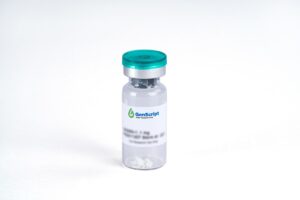
GM-CSF, Human
$2,018.25 Add to cart View Product DetailsGranulocyte Macrophage-Colony Stimulating Factor (GM-CSF) was initially characterized as a growth factor that can support the in vitro colony formation of granulocyte-macrophage progenitors. Granulocyte Macrophage-Colony Stimulating Factor (GM-CSF) is produced by a number of different cell types, including activated T cells, B cells, macrophages, mast cells, endothelial cells, and fibroblasts, in response to cytokine of immune and inflammatory stimuli. Besides granulocyte-macrophage progenitors, Granulocyte Macrophage-Colony Stimulating Factor (GM-CSF) is a growth factor for erythroid, megakaryocyte, and eosinophil progenitors. On mature hematopoietic, monocytes/macrophages and eosinophils. Human Granulocyte Macrophage-Colony Stimulating Factor (GM-CSF) can induce human endothelial cells to migrate and proliferate. Additionally, Granulocyte Macrophage-Colony Stimulating Factor (GM-CSF) can stimulate the proliferation of a number of tumor cell lines, including osteogenic sarcoma, carcinoma, and adenocarcinoma cell lines.
-
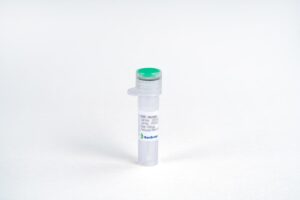
GM-CSF, Human
$86.25 Add to cart View Product DetailsGranulocyte Macrophage-Colony Stimulating Factor (GM-CSF) was initially characterized as a growth factor that can support the in vitro colony formation of granulocyte-macrophage progenitors. Granulocyte Macrophage-Colony Stimulating Factor (GM-CSF) is produced by a number of different cell types, including activated T cells, B cells, macrophages, mast cells, endothelial cells, and fibroblasts, in response to cytokine of immune and inflammatory stimuli. Besides granulocyte-macrophage progenitors, Granulocyte Macrophage-Colony Stimulating Factor (GM-CSF) is a growth factor for erythroid, megakaryocyte, and eosinophil progenitors. On mature hematopoietic, monocytes/macrophages and eosinophils. Human Granulocyte Macrophage-Colony Stimulating Factor (GM-CSF) can induce human endothelial cells to migrate and proliferate. Additionally, Granulocyte Macrophage-Colony Stimulating Factor (GM-CSF) can stimulate the proliferation of a number of tumor cell lines, including osteogenic sarcoma, carcinoma, and adenocarcinoma cell lines.
-

GM-CSF, Human
$271.69 Add to cart View Product DetailsGranulocyte Macrophage-Colony Stimulating Factor (GM-CSF) was initially characterized as a growth factor that can support the in vitro colony formation of granulocyte-macrophage progenitors. Granulocyte Macrophage-Colony Stimulating Factor (GM-CSF) is produced by a number of different cell types, including activated T cells, B cells, macrophages, mast cells, endothelial cells, and fibroblasts, in response to cytokine of immune and inflammatory stimuli. Besides granulocyte-macrophage progenitors, Granulocyte Macrophage-Colony Stimulating Factor (GM-CSF) is a growth factor for erythroid, megakaryocyte, and eosinophil progenitors. On mature hematopoietic, monocytes/macrophages and eosinophils. Human Granulocyte Macrophage-Colony Stimulating Factor (GM-CSF) can induce human endothelial cells to migrate and proliferate. Additionally, Granulocyte Macrophage-Colony Stimulating Factor (GM-CSF) can stimulate the proliferation of a number of tumor cell lines, including osteogenic sarcoma, carcinoma, and adenocarcinoma cell lines.
-

GM-CSF, Human (P. pastoris-expressed)
$2,018.25 Add to cart View Product DetailsGranulocyte Macrophage-Colony Stimulating Factor (GM-CSF) was initially characterized as a growth factor that can support the in vitro colony formation of granulocyte-macrophage progenitors. Granulocyte Macrophage-Colony Stimulating Factor (GM-CSF) is produced by a number of different cell types, including activated T cells, B cells, macrophages, mast cells, endothelial cells, and fibroblasts, in response to cytokine of immune and inflammatory stimuli. Besides granulocyte-macrophage progenitors, Granulocyte Macrophage-Colony Stimulating Factor (GM-CSF) is a growth factor for erythroid, megakaryocyte, and eosinophil progenitors. On mature hematopoietic, monocytes/macrophages and eosinophils. Human Granulocyte Macrophage-Colony Stimulating Factor (GM-CSF) can induce human endothelial cells to migrate and proliferate. Additionally, Granulocyte Macrophage-Colony Stimulating Factor (GM-CSF) can stimulate the proliferation of a number of tumor cell lines, including osteogenic sarcoma, carcinoma, and adenocarcinoma cell lines.
-
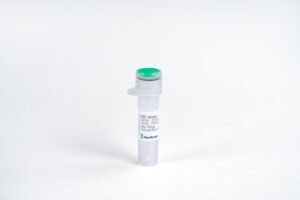
GM-CSF, Human(CHO-expressed)
$2,018.25 Add to cart View Product DetailsGranulocyte Macrophage-Colony Stimulating Factor (GM-CSF) was initially characterized as a growth factor that can support the in vitro colony formation of granulocyte-macrophage progenitors. Granulocyte Macrophage-Colony Stimulating Factor (GM-CSF) is produced by a number of different cell types, including activated T cells, B cells, macrophages, mast cells, endothelial cells, and fibroblasts, in response to cytokine of immune and inflammatory stimuli. Besides granulocyte-macrophage progenitors, Granulocyte Macrophage-Colony Stimulating Factor (GM-CSF) is a growth factor for erythroid, megakaryocyte, and eosinophil progenitors. On mature hematopoietic, monocytes/macrophages and eosinophils. Human Granulocyte Macrophage-Colony Stimulating Factor (GM-CSF) can induce human endothelial cells to migrate and proliferate. Additionally, Granulocyte Macrophage-Colony Stimulating Factor (GM-CSF) can stimulate the proliferation of a number of tumor cell lines, including osteogenic sarcoma, carcinoma, and adenocarcinoma cell lines.
-

GM-CSF, Human(CHO-expressed)
$86.25 Add to cart View Product DetailsGranulocyte Macrophage-Colony Stimulating Factor (GM-CSF) was initially characterized as a growth factor that can support the in vitro colony formation of granulocyte-macrophage progenitors. Granulocyte Macrophage-Colony Stimulating Factor (GM-CSF) is produced by a number of different cell types, including activated T cells, B cells, macrophages, mast cells, endothelial cells, and fibroblasts, in response to cytokine of immune and inflammatory stimuli. Besides granulocyte-macrophage progenitors, Granulocyte Macrophage-Colony Stimulating Factor (GM-CSF) is a growth factor for erythroid, megakaryocyte, and eosinophil progenitors. On mature hematopoietic, monocytes/macrophages and eosinophils. Human Granulocyte Macrophage-Colony Stimulating Factor (GM-CSF) can induce human endothelial cells to migrate and proliferate. Additionally, Granulocyte Macrophage-Colony Stimulating Factor (GM-CSF) can stimulate the proliferation of a number of tumor cell lines, including osteogenic sarcoma, carcinoma, and adenocarcinoma cell lines.
-

GM-CSF, Human(CHO-expressed)
$271.69 Add to cart View Product DetailsGranulocyte Macrophage-Colony Stimulating Factor (GM-CSF) was initially characterized as a growth factor that can support the in vitro colony formation of granulocyte-macrophage progenitors. Granulocyte Macrophage-Colony Stimulating Factor (GM-CSF) is produced by a number of different cell types, including activated T cells, B cells, macrophages, mast cells, endothelial cells, and fibroblasts, in response to cytokine of immune and inflammatory stimuli. Besides granulocyte-macrophage progenitors, Granulocyte Macrophage-Colony Stimulating Factor (GM-CSF) is a growth factor for erythroid, megakaryocyte, and eosinophil progenitors. On mature hematopoietic, monocytes/macrophages and eosinophils. Human Granulocyte Macrophage-Colony Stimulating Factor (GM-CSF) can induce human endothelial cells to migrate and proliferate. Additionally, Granulocyte Macrophage-Colony Stimulating Factor (GM-CSF) can stimulate the proliferation of a number of tumor cell lines, including osteogenic sarcoma, carcinoma, and adenocarcinoma cell lines.
-

GM-CSF, Mouse
$2,018.25 Add to cart View Product DetailsGranulocyte Macrophage-Colony Stimulating Factor (GM-CSF) was initially characterized as a growth factor that can support the in vitro colony formation of granulocyte-macrophage progenitors. Granulocyte Macrophage-Colony Stimulating Factor (GM-CSF) is produced by a number of different cell types, including activated T cells, B cells, macrophages, mast cells, endothelial cells, and fibroblasts, in response to cytokine of immune and inflammatory stimuli. Besides granulocyte-macrophage progenitors, Granulocyte Macrophage-Colony Stimulating Factor (GM-CSF) is a growth factor for erythroid, megakaryocyte, and eosinophil progenitors. On mature hematopoietic, monocytes/macrophages and eosinophils. Additionally, Granulocyte Macrophage-Colony Stimulating Factor (GM-CSF) can stimulate the proliferation of a number of tumor cell lines, including osteogenic sarcoma, carcinoma, and adenocarcinoma cell lines.
-

GM-CSF, Mouse
$86.25 Add to cart View Product DetailsGranulocyte Macrophage-Colony Stimulating Factor (GM-CSF) was initially characterized as a growth factor that can support the in vitro colony formation of granulocyte-macrophage progenitors. Granulocyte Macrophage-Colony Stimulating Factor (GM-CSF) is produced by a number of different cell types, including activated T cells, B cells, macrophages, mast cells, endothelial cells, and fibroblasts, in response to cytokine of immune and inflammatory stimuli. Besides granulocyte-macrophage progenitors, Granulocyte Macrophage-Colony Stimulating Factor (GM-CSF) is a growth factor for erythroid, megakaryocyte, and eosinophil progenitors. On mature hematopoietic, monocytes/macrophages and eosinophils. Additionally, Granulocyte Macrophage-Colony Stimulating Factor (GM-CSF) can stimulate the proliferation of a number of tumor cell lines, including osteogenic sarcoma, carcinoma, and adenocarcinoma cell lines.
-

GM-CSF, Mouse
$271.69 Add to cart View Product DetailsGranulocyte Macrophage-Colony Stimulating Factor (GM-CSF) was initially characterized as a growth factor that can support the in vitro colony formation of granulocyte-macrophage progenitors. Granulocyte Macrophage-Colony Stimulating Factor (GM-CSF) is produced by a number of different cell types, including activated T cells, B cells, macrophages, mast cells, endothelial cells, and fibroblasts, in response to cytokine of immune and inflammatory stimuli. Besides granulocyte-macrophage progenitors, Granulocyte Macrophage-Colony Stimulating Factor (GM-CSF) is a growth factor for erythroid, megakaryocyte, and eosinophil progenitors. On mature hematopoietic, monocytes/macrophages and eosinophils. Additionally, Granulocyte Macrophage-Colony Stimulating Factor (GM-CSF) can stimulate the proliferation of a number of tumor cell lines, including osteogenic sarcoma, carcinoma, and adenocarcinoma cell lines.
-

GM-CSF, Mouse
$1,470.56 Add to cart View Product DetailsGranulocyte Macrophage-Colony Stimulating Factor (GM-CSF) was initially characterized as a growth factor that can support the in vitro colony formation of granulocyte-macrophage progenitors. Granulocyte Macrophage-Colony Stimulating Factor (GM-CSF) is produced by a number of different cell types, including activated T cells, B cells, macrophages, mast cells, endothelial cells, and fibroblasts, in response to cytokine of immune and inflammatory stimuli. Besides granulocyte-macrophage progenitors, Granulocyte Macrophage-Colony Stimulating Factor (GM-CSF) is a growth factor for erythroid, megakaryocyte, and eosinophil progenitors. On mature hematopoietic, monocytes/macrophages and eosinophils. Additionally, Granulocyte Macrophage-Colony Stimulating Factor (GM-CSF) can stimulate the proliferation of a number of tumor cell lines, including osteogenic sarcoma, carcinoma, and adenocarcinoma cell lines.
-

GM-CSF, Mouse
$68.14 Add to cart View Product DetailsGranulocyte Macrophage-Colony Stimulating Factor (GM-CSF) was initially characterized as a growth factor that can support the in vitro colony formation of granulocyte-macrophage progenitors. Granulocyte Macrophage-Colony Stimulating Factor (GM-CSF) is produced by a number of different cell types, including activated T cells, B cells, macrophages, mast cells, endothelial cells, and fibroblasts, in response to cytokine of immune and inflammatory stimuli. Besides granulocyte-macrophage progenitors, Granulocyte Macrophage-Colony Stimulating Factor (GM-CSF) is a growth factor for erythroid, megakaryocyte, and eosinophil progenitors. On mature hematopoietic, monocytes/macrophages and eosinophils. Additionally, Granulocyte Macrophage-Colony Stimulating Factor (GM-CSF) can stimulate the proliferation of a number of tumor cell lines, including osteogenic sarcoma, carcinoma, and adenocarcinoma cell lines.
-

GM-CSF, Mouse
$194.06 Add to cart View Product DetailsGranulocyte Macrophage-Colony Stimulating Factor (GM-CSF) was initially characterized as a growth factor that can support the in vitro colony formation of granulocyte-macrophage progenitors. Granulocyte Macrophage-Colony Stimulating Factor (GM-CSF) is produced by a number of different cell types, including activated T cells, B cells, macrophages, mast cells, endothelial cells, and fibroblasts, in response to cytokine of immune and inflammatory stimuli. Besides granulocyte-macrophage progenitors, Granulocyte Macrophage-Colony Stimulating Factor (GM-CSF) is a growth factor for erythroid, megakaryocyte, and eosinophil progenitors. On mature hematopoietic, monocytes/macrophages and eosinophils. Additionally, Granulocyte Macrophage-Colony Stimulating Factor (GM-CSF) can stimulate the proliferation of a number of tumor cell lines, including osteogenic sarcoma, carcinoma, and adenocarcinoma cell lines.
-

GM-CSF, Rat
$1,470.56 Add to cart View Product DetailsGranulocyte Macrophage-Colony Stimulating Factor (GM-CSF) was initially characterized as a growth factor that can support the in vitro colony formation of granulocyte-macrophage progenitors. Granulocyte Macrophage-Colony Stimulating Factor (GM-CSF) is produced by a number of different cell types, including activated T cells, B cells, macrophages, mast cells, endothelial cells, and fibroblasts, in response to cytokine of immune and inflammatory stimuli. Besides granulocyte-macrophage progenitors, Granulocyte Macrophage-Colony Stimulating Factor (GM-CSF) is a growth factor for erythroid, megakaryocyte, and eosinophil progenitors. On mature hematopoietic, monocytes/macrophages and eosinophils. Additionally, Granulocyte Macrophage-Colony Stimulating Factor (GM-CSF) can stimulate the proliferation of a number of tumor cell lines, including osteogenic sarcoma, carcinoma, and adenocarcinoma cell lines.
-

GM-CSF, Rat
$68.14 Add to cart View Product DetailsGranulocyte Macrophage-Colony Stimulating Factor (GM-CSF) was initially characterized as a growth factor that can support the in vitro colony formation of granulocyte-macrophage progenitors. Granulocyte Macrophage-Colony Stimulating Factor (GM-CSF) is produced by a number of different cell types, including activated T cells, B cells, macrophages, mast cells, endothelial cells, and fibroblasts, in response to cytokine of immune and inflammatory stimuli. Besides granulocyte-macrophage progenitors, Granulocyte Macrophage-Colony Stimulating Factor (GM-CSF) is a growth factor for erythroid, megakaryocyte, and eosinophil progenitors. On mature hematopoietic, monocytes/macrophages and eosinophils. Additionally, Granulocyte Macrophage-Colony Stimulating Factor (GM-CSF) can stimulate the proliferation of a number of tumor cell lines, including osteogenic sarcoma, carcinoma, and adenocarcinoma cell lines.
-

GM-CSF, Rat
$155.25 Add to cart View Product DetailsGranulocyte Macrophage-Colony Stimulating Factor (GM-CSF) was initially characterized as a growth factor that can support the in vitro colony formation of granulocyte-macrophage progenitors. Granulocyte Macrophage-Colony Stimulating Factor (GM-CSF) is produced by a number of different cell types, including activated T cells, B cells, macrophages, mast cells, endothelial cells, and fibroblasts, in response to cytokine of immune and inflammatory stimuli. Besides granulocyte-macrophage progenitors, Granulocyte Macrophage-Colony Stimulating Factor (GM-CSF) is a growth factor for erythroid, megakaryocyte, and eosinophil progenitors. On mature hematopoietic, monocytes/macrophages and eosinophils. Additionally, Granulocyte Macrophage-Colony Stimulating Factor (GM-CSF) can stimulate the proliferation of a number of tumor cell lines, including osteogenic sarcoma, carcinoma, and adenocarcinoma cell lines.
-

GM-CSF, RhesusMacaque
$2,785.88 Add to cart View Product DetailsGranulocyte Macrophage-Colony Stimulating Factor (GM-CSF) was initially characterized as a growth factor that can support the in vitro colony formation of granulocyte-macrophage progenitors. Granulocyte Macrophage-Colony Stimulating Factor (GM-CSF) is produced by a number of different cell types, including activated T cells, B cells, macrophages, mast cells, endothelial cells, and fibroblasts, in response to cytokine of immune and inflammatory stimuli. Besides granulocyte-macrophage progenitors, Granulocyte Macrophage-Colony Stimulating Factor (GM-CSF) is a growth factor for erythroid, megakaryocyte, and eosinophil progenitors. On mature hematopoietic, monocytes/macrophages and eosinophils. Additionally, Granulocyte Macrophage-Colony Stimulating Factor (GM-CSF) can stimulate the proliferation of a number of tumor cell lines, including osteogenic sarcoma, carcinoma, and adenocarcinoma cell lines.
-

GM-CSF, RhesusMacaque
$155.25 Add to cart View Product DetailsGranulocyte Macrophage-Colony Stimulating Factor (GM-CSF) was initially characterized as a growth factor that can support the in vitro colony formation of granulocyte-macrophage progenitors. Granulocyte Macrophage-Colony Stimulating Factor (GM-CSF) is produced by a number of different cell types, including activated T cells, B cells, macrophages, mast cells, endothelial cells, and fibroblasts, in response to cytokine of immune and inflammatory stimuli. Besides granulocyte-macrophage progenitors, Granulocyte Macrophage-Colony Stimulating Factor (GM-CSF) is a growth factor for erythroid, megakaryocyte, and eosinophil progenitors. On mature hematopoietic, monocytes/macrophages and eosinophils. Additionally, Granulocyte Macrophage-Colony Stimulating Factor (GM-CSF) can stimulate the proliferation of a number of tumor cell lines, including osteogenic sarcoma, carcinoma, and adenocarcinoma cell lines.
-

GMFB, Human
$2,238.19 Add to cart View Product DetailsGlia maturation factor beta (GMFB) contains an ADF-H domain,which is a member of the actin-binding proteins ADF family, GMF subfamily. It is a nerve growth factor implicated in nervous system development, angiogenesis, and immune function. GMFB causes differentiation of brain cells, stimulation of neural regeneration, and inhibition of proliferation of tumor cells. It is phosphorylated after phorbol ester stimulation and is crucial for the nervous system. GMFB overexpression in astrocytes results in the increase of BDNF production. GMFB expression is increased by exercise, thus BDNF is important for exercise-induction of BDNF.
-

GMFB, Human
$452.81 Add to cart View Product DetailsGlia maturation factor beta (GMFB) contains an ADF-H domain,which is a member of the actin-binding proteins ADF family, GMF subfamily. It is a nerve growth factor implicated in nervous system development, angiogenesis, and immune function. GMFB causes differentiation of brain cells, stimulation of neural regeneration, and inhibition of proliferation of tumor cells. It is phosphorylated after phorbol ester stimulation and is crucial for the nervous system. GMFB overexpression in astrocytes results in the increase of BDNF production. GMFB expression is increased by exercise, thus BDNF is important for exercise-induction of BDNF.
-

GMP Anti-Human CD28 Antibody (F105), mAb, Mouse
$1,035.00 Add to cart View Product DetailsThis product is specific for Human CD28
-

GMP Anti-Human CD28 Antibody (F105), mAb, Mouse
$129.38 Add to cart View Product DetailsThis product is specific for Human CD28
-

GMP Anti-Human CD3 Antibody (OKT3), mAb, Mouse
$1,035.00 Add to cart View Product DetailsThis product is specific for Human CD3
-

GMP Anti-Human CD3 Antibody (OKT3), mAb, Mouse
$129.38 Add to cart View Product DetailsThis product is specific for Human CD3
-
GMX1778
$122.48 Add to cart View Product DetailsMolecular Formula : C19H22ClN5O
-
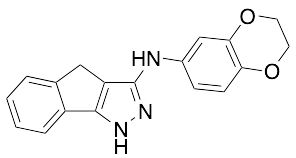
GN 44028
$111.26 Add to cart View Product DetailsMolecular Formula : C18N15N3O2
-

GN 44028
$237.19 Add to cart View Product DetailsMolecular Formula : C18N15N3O2
-

GN 44028
$413.14 Add to cart View Product DetailsMolecular Formula : C18N15N3O2
-
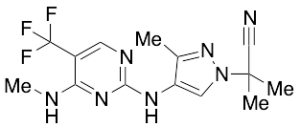
GNE-0877
$257.89 Add to cart View Product DetailsMolecular Formula : C14H16F3N7
-
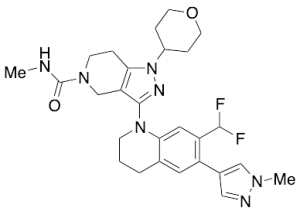
GNE-781
$199.24 Add to cart View Product DetailsMolecular Formula : C4 H11 N O . H Cl
-

GNE-781
$867.68 Add to cart View Product DetailsMolecular Formula : C4 H11 N O . H Cl
-

GNE-781
$1,612.01 Add to cart View Product DetailsMolecular Formula : C4 H11 N O . H Cl


